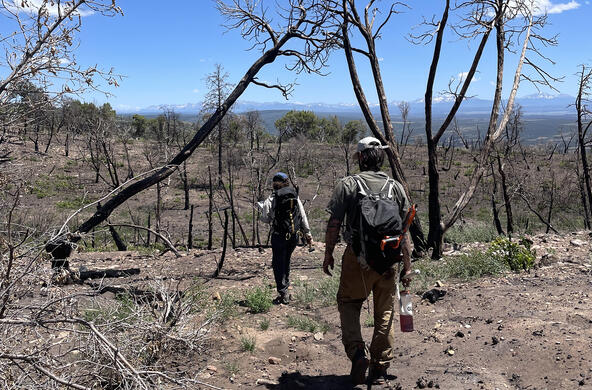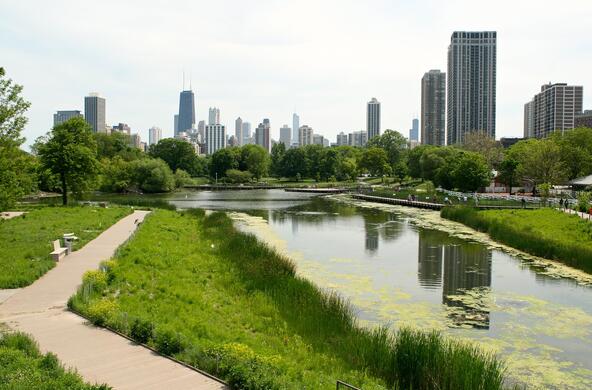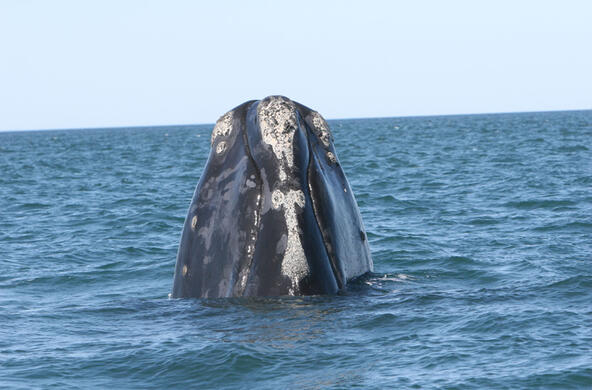I often hear that ecologists should stop being so gloomy. After all, the world isn’t coming to an end — the sky is still blue, the grass is still green and the birds are still singing. But this critique of ecology misunderstands three essential matters — the nature of ecological apocalypse, the good reasons why ecologists might feel gloomy, and the central motivations of ecology, which are fundamentally optimistic.
We are familiar with apocalypse through a recent spate of post-apocalyptic novels and movies — “The Hunger Games,” “World War Z,” the MaddAddam trilogy and “The Road,” to name just a few. In most popular portrayals, the apocalypse is sudden and definitive, whether it comes from atomic war, disease, or zombies. There is the period before the apocalypse and the period after the apocalypse, and never any doubt about which period you’re in.
In contrast, ecological apocalypse is gradual and insidious, and there is a long period that is neither clearly pre-apocalyptic nor post-apocalyptic. What had been the most abundant bird species in North America disappears entirely; vast runs of migratory fish vanish from our rivers; lakes around the world fill with toxic algae; invasive diseases sweep the planet, driving amphibians around the world into an unparalleled spasm of extinction and killing our bats and iconic forest trees (chestnuts, ashes, hemlocks and elms so far); millions of acres of soils in our most populous nation become too badly polluted to grow safe food; some of the world’s greatest rivers dry to their dusty beds during dry seasons, their waters entirely consumed to slake human thirsts; the very climate of the planet changes. OK, it’s not the end of the world, but it’s obvious that we’ve come a long way from Eden. These changes took place not in the flash of a nuclear explosion, but over many human lifetimes. We moved down the road from Eden toward Dystopia so gradually that few of us even noticed.
But ecologists notice, because we know what the world used to be like, and watch how the world is changing today. It is the gift and burden of ecologists to be able to see these changes, in Edna O’Brien’s phrase, with a ruthless clarity. We also think that we can see where today’s actions may take us, and what additional damages to our ecosystems and our own health and quality of life will result if we continue down the road we’re on. It is frustrating, then, to hear that we should lighten up because everything is fine. Clearly, everything is not fine, and there is a very good chance that it will get worse. In part to counter the argument that everything is fine, and in part to motivate the action that we think is needed to improve the world, we recite these damages that we see, leading to our reputation for gloominess.
Now here’s the optimistic message of ecology. We can’t choose the road that brought us here and so damaged our natural world, but we do get to choose the road ahead from this point. Contrary to our image of pessimism, most ecologists I know are optimists, in the sense that we believe that gathering and applying knowledge about ecosystems will let us choose a better road forward. We work every day to better understand how ecosystems work, how human activities affect them, and how to reduce and even repair ecological damages from human activities. It would be hard to get out of bed every day to do this work if we weren’t at some level optimists. It’s just that we struggle to articulate our twin message of apocalypse and optimism, urgency and empowerment.
Every day, individually and collectively, we make the decisions that determine where we go next on this road from Eden. To a place where our grandchildren and their grandchildren will prosper, or to one of the Dystopias? To find a good way forward, we will need wisdom and nerve, a clear understanding of where we are along this road, and a map that shows us where different roads lead. This is where ecologists, even gloomy ones, can help us.







